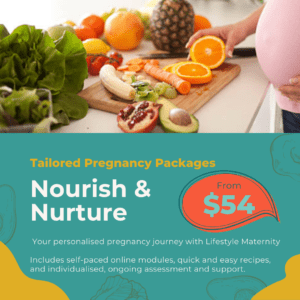Understanding the MTHFR gene in pregnancy
The MTHFR gene plays a crucial role in human health, particularly during pregnancy.
It provides instructions for creating an enzyme called methylenetetrahydrofolate reductase. This enzyme is essential for processing folate, a B vitamin crucial for cell growth and development.
Part of this development is of the baby’s ‘neural tube’. Normally, during the first month of pregnancy, the two sides of the fetus’s spine (backbone) join to cover and protect the spinal cord, spinal nerves and meninges (the tissues covering the spinal cord). At this point, the developing brain and spine are called the neural tube.
Understanding MTHFR Gene Variations
The MTHFR gene is highly variable, with several common variations in the instructions for how the gene ‘works’ or is ‘read’. These variations are also called polymorphisms.
Two of the most well-studied MTHFR polymorphisms are:
- C677T: This variation occurs at position 677 of the gene, where a cytosine (C) nucleotide is replaced by a thymine (T).
- A1298C: This variation occurs at position 1298, where an adenine (A) is replaced by a cytosine (C).
It’s important to realise that a polymorphism is a variant within a gene that does NOT necessarily affect its function, unlike a pathogenic mutation.
We regularly get asked about the MTHFR enzyme…
It’s easy to get freaked out when you go down a ‘Dr Google’ rabbit hole. There is a lot of (mis)information about this enzyme online.
Fortunately, two experienced Australian clinicians have recently outlined important facts about the controversies and clinical implications of this enzyme. (1)
What do the experts say?
Long and Goldblatt point out that there are two predominant MTHFR polymorphisms, 677C>T and 1298A>C. They note that, in the general population, 60–70% of people will have at least one of these variants (be heterozygous), 8.5% will be homozygous for 677C>T or 1298A>C, and 2.25% will be compound heterozygous. Overall, 10% of the population will be homozygous or compound heterozygous for these two polymorphisms.
The MTHFR polymorphisms in the homozygous or compound heterozygous form only reduce enzyme production mildly and are thus of LIMITED pathogenicity. The 677C>T polymorphism in the homozygous form may result in MILD homocystinuria due to decreased MTHFR activity. The 1298A>C polymorphism does not cause homocystinuria in a heterozygous or homozygous form, but may affect enzyme activity when inherited with the 677C>T polymorphism.
Given the prevalence of the MTHFR polymorphisms (60–70% of the population) and the frequency of neural tube defects (approximately 1 in 1000 in Australia), it is UNLIKELY that the polymorphisms alone have a significant role in the formation of neural tube defects.
While there may be some increased risk of neural tube defects in individuals with the homozygous 677C>T variant, the level of risk has not been quantified and the impact of environmental factors, such as folate supplementation, has a more significant role.
So, WHAT does this all mean?
These authors suggest that, on the basis of the available scientific evidence, there are very limited clinical indications for testing for the 677C>T and the 1298A>C polymorphisms in the MTHFR gene. They say that testing is not indicated as a non-specific screening test in the asymptomatic general population.
The attention paid to this enzyme is out of proportion to the known association of folate deficiency and neural tube defects in pregnancy.
The take away message is that it’s more important to find and help women with low folate intake before pregnancy than to worry about something that impacts very few women.
Did you know that population-level fortification of folate results in a decrease in the incidence of neural tube defects by about 70%.(2)
This has been demonstrated through a significant drop in neural tube defects when population-level fortification of folate occurred.
Knowing the importance of folic acid before and in early pregnancy AND due to low intake of folate before and during pregnancy the Australian and New Zealand Governments introduced food fortification.
From September – October 2009, Food Standards Australia New Zealand (FSANZ) developed a mandatory folic acid fortification standard to help reduce the incidence of neural tube defects. They also brought in a mandatory iodine fortification standard to address the re-emergence of iodine deficiency in the population.
This involves the addition of folic acid to bread-making flour in Australia (all except organic and gluten free flours) and iodine (via iodised salt) to bread in Australia and New Zealand.
So, is the amount of folate in food enough for me before and during pregnancy?
No, it’s still essential to take a supplement.
FOLIC ACID. This is the most important supplement to take when trying to conceive, as it helps prevent neural tube defects in the developing baby. Most women need to take a supplement that contains at least 400 micrograms (mcg; µg) of folic acid per day, starting at least one month before conception and during the first trimester (at least). Some women need higher amounts – these include women with diabetes, a higher body mass index, those with a family history of neural tube defects, or who are taking certain medications.
Additionally, while iodine is not directly related to improving fertility it is essential to take during all of pregnancy and while breastfeeding. Iodine is involved in growth and development, especially for a baby’s brain. Studies show that the Australian population is mildly iodine deficient. Pregnant women need 220 micrograms of iodine per day. All women should take a daily supplement with 150 micrograms during pregnancy and breastfeeding.
What are good food sources of folate and iodine?
Well planned nutrition, especially folate intake, is crucial for all pregnant women, regardless of MTHFR gene status.
Folate-rich foods:
- Leafy green vegetables,
- citrus fruits,
- beans and legumes, and
- fortified breads and cereals.
Iodine rich foods:
- Most breads and cereals (these are now made with iodised salt)
- Vegetables (depending on the quality of the soils they are grown in)
- Fish and seaweed (but remember food safety tips in pregnancy), and
- Iodised salt (use over other salts, but for heart health – use sparingly)
Key takeaway: The MTHFR gene plays a role in folate metabolism, and variations in this gene may have implications for pregnancy outcomes. While research in this area is ongoing, maintaining a healthy diet rich in folate AND supplementing with a supplement containing 400mcg of folic acid in at least the month before and the first trimester of pregnancy is essential.
To find out more about pregnancy supplementation read here.
We also have a blog about fertility supplementation here.
REFERENCES:
- Long S & Goldblatt J. (2016). MTHFR genetic testing: Controversy and clinical implications. Australian Family Physician. 45(4) https://www.racgp.org.au/afp/2016/april/mthfr-genetic-testing-controversy-and-clinical-imp
- Bower C, Stanley FJ. Dietary folate as a risk factor for neural tube defects: evidence from a case-control study in Western Australia. Med J Aust 1989;150:613-9.
Image: deoxyribonucleic acid
Photo by Warren Umoh on Unsplash






 Find us on
Find us on